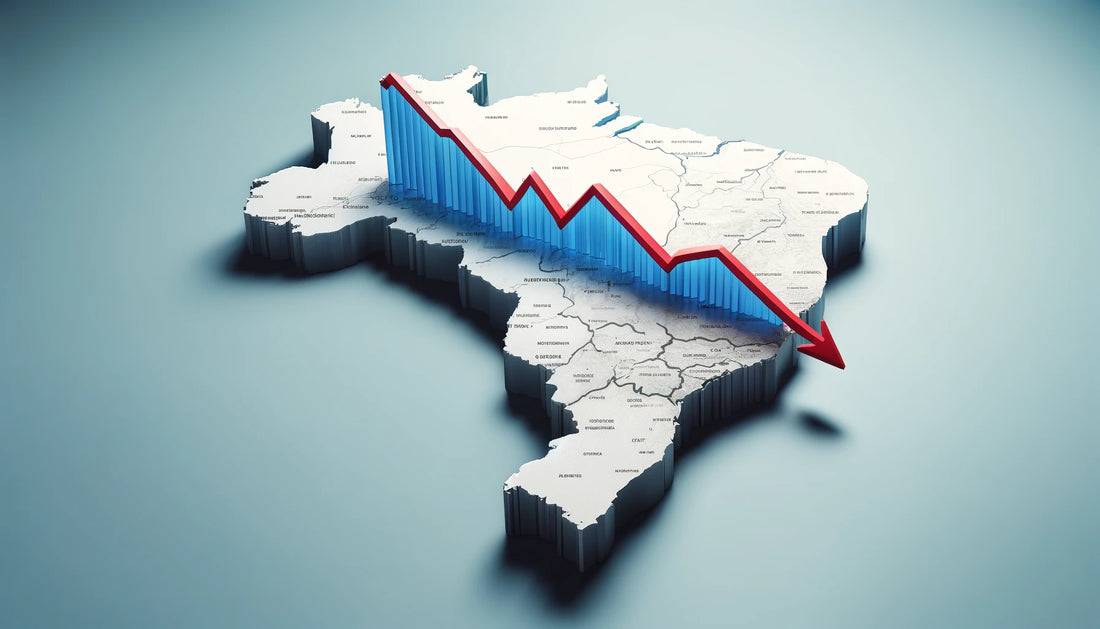
Perspectives of the Financial Market and Brazilian economic growth
GDP Projection Analysis
The financial market demonstrated continued optimism regarding Brazil's economic growth, raising its projection for the 2024 Gross Domestic Product (GDP) for the tenth consecutive time. According to the most recent Focus bulletin, released by the Central Bank, it is now expected that Brazilian GDP will grow 2.02% this year, an increase compared to the previous forecast of 1.95%. This upward trend in expectations reflects the resilience of the Brazilian economy in a global context still marked by uncertainty.
The consistency of growth projections for the coming years, remaining at 2% until 2027, suggests expected economic stability, which could be a positive sign for investors and government policies focused on economic sustainability.
COMPRACO Opinion: It does not seem to be a concrete fact given the decline in the economy.
Inflation and Monetary Policy
The bulletin also highlighted adjustments in the inflation forecast, with a slight increase expected to 3.73% in 2024, remaining within the target tolerance range established by the National Monetary Council (CMN). The central target is 3%, with a range of 1.5 percentage points more or less. This expectation of inflation control is crucial to maintaining the population's purchasing power and confidence in the market.
Future projections for inflation, which expect stabilization at around 3.5% by 2027, indicate that the Central Bank is managing to keep inflation expectations anchored, despite internal and external economic challenges.
Interest and economic impacts
As for basic interest rates, represented by the Selic rate, there is an expectation that it will end the year at 9.5%, an upward revision in relation to previous forecasts. This change in interest rate expectations reflects the complex balance between stimulating the economy and controlling inflation.
The Central Bank's interest policy directly impacts the cost of credit and economic activity. Reductions in the Selic tend to stimulate consumption and investment, while increases can contain inflationary pressures but also slow down economic growth.
Exchange rate and its impact
The forecast for the exchange rate points to a dollar at R$5.00 in 2024, with a gradual increase trend in the coming years. This appreciation of the dollar can directly affect inflation through increased import costs and also influence foreign policy and international trade decisions.
A weaker real can benefit exporters by making Brazilian products more competitive internationally, but it can also increase import costs, affecting inflation and the cost of living.
Economic Crisis in Brazil: The failure of Federal management
Economic Dismantling Under Current Management
The Brazilian economy, despite optimistic projections from the financial market, is facing a worrying decline, exacerbated by a series of questionable decisions and the lack of effective action on the part of the federal government. The administration's recent measures, or lack thereof, seem more like a roadmap to economic disaster than a blueprint for national progress. This article seeks to uncover the roots of government ineffectiveness and the devastating impact it has on economic growth and the well-being of the population.
Wrong Economic Decisions
The current administration has shown itself to be incapable of facing economic challenges with the necessary seriousness and efficiency. The lack of clarity in policies, inconstancy in government decisions and the inability to formulate and execute solid economic strategies are just the beginning of the problems. The government has flirted with populist policies that offer short-term solutions to complex problems without considering the long-term consequences of these actions.
Important Point: The insistence on keeping interest rates artificially low at inappropriate times, the manipulation of economic statistics to paint a less bleak picture, and the neglect of necessary structural reforms have only deepened the crisis.
Impact of Government inoperation
The government's ineffectiveness is not limited to economic mismanagement. There is a visible erosion of confidence both in the domestic market and among international investors. The perceived risk of investing in Brazil increases, leading to capital flight and the devaluation of the real, which further contributes to inflation and reduces the population's purchasing power.
The inability to implement policies that effectively stimulate economic growth and control inflation is not only stagnating the economy, but also reversing the hard-won gains of recent decades.
The lack of clear direction and Interest Policy
The management of interest rate policy has been particularly problematic. While the Central Bank tries to balance interest rates to contain inflation without stifling growth, incessant political interventions have compromised its autonomy and effectiveness. This political interference in economic control mechanisms is a recipe for instability and uncertainty, negatively affecting the business environment and the economy as a whole.
Concluding
Brazil's economic outlook, as outlined by financial market projections, suggests sustainable growth with manageable challenges in relation to inflation and interest rates. However, exchange rate volatility remains a risk factor that requires constant monitoring. It is critical that economic policies continue to adapt dynamically to foster growth while maintaining macroeconomic stability.
We invite readers to share their opinions and expectations about Brazil's economic trajectory in the comments below. How do you see the impact of these projections on your daily life and business?


















































